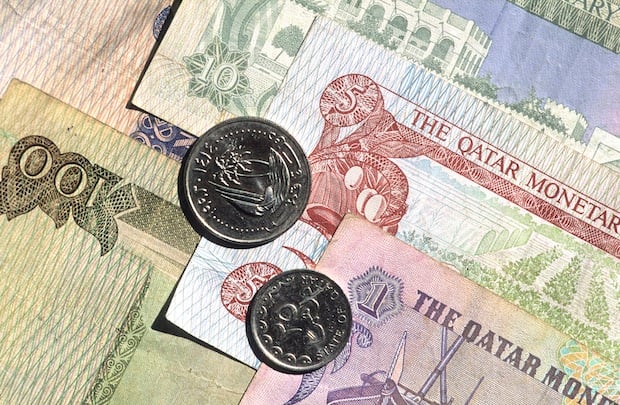Qatar sovereign fund deposits dollars in local banks as precaution
New deposits by the Qatar Investment Authority were believed to total several billion dollars, a source said

Qatar’s sovereign wealth fund made US dollar deposits in some local banks last week as a precaution after Saudi Arabia and other Gulf states cut diplomatic and transport ties with Doha, Qatari commercial bankers said.
One Qatar-based banker, whose own institution received funds, said new deposits in the banking system by the Qatar Investment Authority (QIA) at the end of last week were believed to total several billion dollars. He described the deposits as “pre-emptive”.
At a recent meeting between top commercial bank executives and central bank officials, the executives said they did not need dollar liquidity at present, the banker told Reuters, declining to be named because of commercial sensitivities.
But if the diplomatic crisis lasts another three or four months, and Saudi Arabian and United Arab Emirates banks pull their deposits out of Qatar, local banks might need official help, the banker said.
The QIA declined to comment. Asked for comment, a central bank official told Reuters:
“QIA regularly place deposits in local banks – this is normal. Contrary to media reports, there haven’t been big withdrawals from banks in Qatar, and the embargo is only having a limited effect on the banking sector here, and one that is easily manageable.”
Qatar’s banks became dependent on foreign funding during the last few years of strong economic growth. Their foreign liabilities increased to QAR451bn ($124bn) in March from QAR310bn at the end of 2015.
Yousef al-Jaida, chief executive of the Qatar Financial Centre, said this week that institutions from Saudi Arabia, the UAE and Bahrain had about $18bn of deposits in Qatari banks that would mature in two months.
He said it was not yet clear whether those countries would decide to have their institutions pull the money out, but added that Qatar’s government was prepared to step in and support local banks if needed.
The Centre has a legal, regulatory, tax and business infrastructure, and licenses foreign companies to exempt them from local ownership laws.
Both the QIA and the central bank have told the banking community that they are ready to assist local banks further with dollar or riyal funding, said the Qatar-based banker.
He said that so far, only one UAE institution, a government-linked-firm, had pulled deposits from his bank, asking to withdraw a three-month deposit of about $100m early.
Many depositors have been asking questions, but nobody else has asked for their money back and one Asian asset manager has continued to place deposits, he added.
The central bank has about $34.5bn of net foreign reserves and the QIA is believed to hold over $200bn of liquid assets, so Qatar appears to be in no danger of running out of money to protect its banking system.
The QIA owns stakes in several Qatari banks including 50 per cent of Qatar National Bank, the largest lender, and a 16.9 per cent stake in Qatar Islamic Bank, the largest sharia-compliant lender by assets.
The Qatari riyal, which is pegged at 3.64 to the U.S. dollar, has moved slightly off the peg since the diplomatic crisis began on June 5, and is now quoted by banks offshore at around 3.67.
The Qatari banker said the central bank had not issued any specific warnings to banks about speculating against the peg, but it was committed to the peg and the only institutions speculating in the foreign exchange market were hedge funds and some other international investors.
